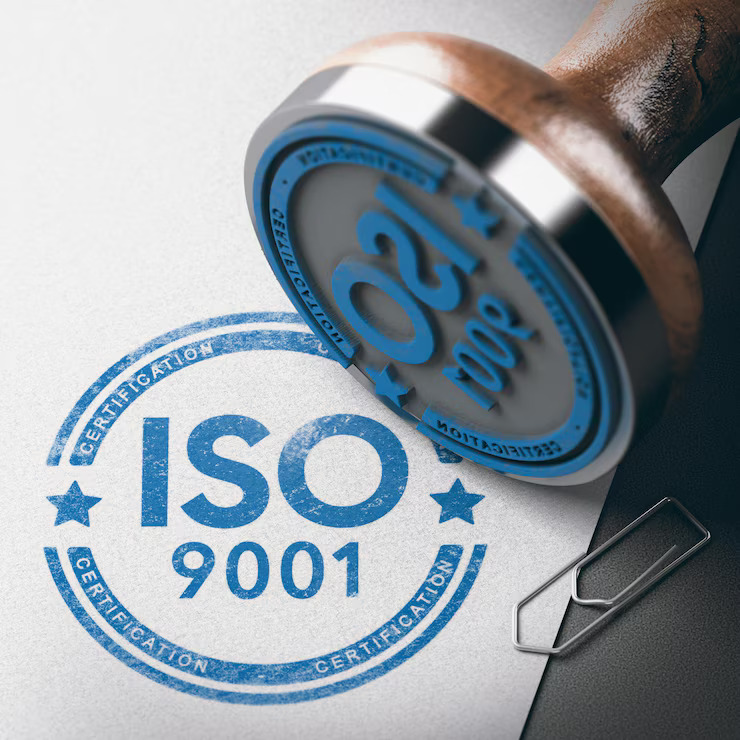
In today’s competitive and quality-conscious business world, implementing the right management standard is key to growth, consistency, and customer satisfaction. While there are several internationally recognized quality standards available—such as ISO 14001, ISO 45001, and Six Sigma—ISO 9001 certification stands out as the most widely adopted framework for quality management systems (QMS) across industries.
But what exactly sets ISO 9001 apart from other standards? And how does the ISO 9001:2015 certification version strengthen its global relevance? Let’s explore.
What Is ISO 9001 Certification?
ISO 9001 is a globally recognized standard developed by the International Organization for Standardization (ISO). It lays out the criteria for establishing, implementing, and maintaining an effective quality management system. Companies that achieve ISO 9001 certification demonstrate their ability to consistently provide products and services that meet both customer and regulatory requirements.
The latest version, known as ISO 9001:2015 certification, emphasizes risk-based thinking, leadership involvement, and continuous improvement—making it more adaptable and applicable to all types of businesses.
How ISO 9001 Differs from Other Standards
Let’s break down how ISO 9001 stands apart when compared to other commonly implemented standards:
1. Universal Applicability
Unlike many quality standards that are industry-specific (e.g., ISO 13485 for medical devices, or IATF 16949 for automotive), ISO 9001 is designed for businesses of any size and sector. Whether you’re in manufacturing, IT, healthcare, or hospitality, ISO 9001 certification is adaptable to your operations.
2. Focus on Customer Satisfaction
While most standards aim to improve performance, ISO 9001 places a strong emphasis on understanding and meeting customer expectations. It pushes companies to establish processes that continuously enhance customer satisfaction—making it a powerful tool for relationship building and retention.
3. Risk-Based Thinking
One of the key enhancements in the ISO 9001:2015 certification is the integration of risk-based thinking. This means companies are encouraged to identify risks and opportunities at every stage of their process and plan accordingly—helping businesses stay agile and proactive.
Other standards may mention risk management, but ISO 9001 embeds it directly into the core requirements.
4. Leadership and Engagement
ISO 9001 places responsibility on top management to actively lead and support the implementation of the QMS. This level of involvement ensures that quality isn’t just a compliance issue—it becomes part of the company culture. In contrast, other frameworks may treat leadership as more of a support function.
5. Process-Oriented Approach
The ISO 9001 framework promotes a process-based structure, where organizations evaluate and manage their operations as interconnected systems. This helps in identifying inefficiencies and areas for improvement more clearly than siloed or checklist-based standards.
6. Continuous Improvement as a Core Principle
Unlike some quality programs that focus on certifications or one-time audits, ISO 9001 certification is built around continuous improvement. Businesses are encouraged to use internal audits, management reviews, and corrective actions to drive ongoing development.
Why ISO 9001:2015 Certification Is More Relevant Than Ever
The ISO 9001:2015 version modernized the standard to reflect the fast-changing global business environment. It encourages companies to be more flexible, engage stakeholders effectively, and align their quality systems with strategic direction.
This makes the ISO 9001:2015 certification not just a badge, but a practical business tool for managing operations smarter and more efficiently.
Final Thoughts
While several quality standards offer excellent frameworks for specific goals or industries, ISO 9001 certification remains the gold standard for general business quality management. Its universal applicability, customer-first approach, and continuous improvement mindset make it a top choice for organizations aiming for long-term success.
Whether you’re looking to enhance credibility, streamline processes, or meet global expectations, ISO 9001:2015 certification is a smart investment in both quality and reputation.



